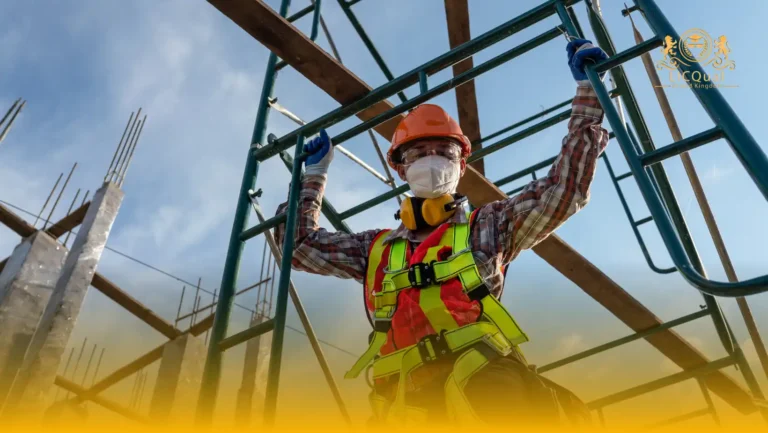Food contamination is one of the most pressing concerns in global food safety, posing serious risks to public health, business operations, and brand reputation. The LICQual Certificate in HACCP Food Contamination is an internationally recognized qualification designed to provide food safety professionals with specialized knowledge and practical tools to identify, control, and prevent contamination in food production and handling environments.
Based on the proven principles of Hazard Analysis and Critical Control Points (HACCP), this course offers targeted training that addresses the diverse types of contamination—biological, chemical, physical, and allergenic—that can compromise food safety. Whether you work in food processing, catering, retail, or supply chain management, this certification will enhance your expertise and ensure your practices meet the highest global standards.
The LICQual Certificate in HACCP Food Contamination provides a deep dive into the critical topic of food contamination within the framework of HACCP-based food safety systems. Participants will gain a comprehensive understanding of contamination sources, risk assessment techniques, and the implementation of control measures to eliminate or reduce hazards to acceptable levels. The course covers key areas such as microbial contamination, chemical residues, foreign objects, cross-contact allergens, and environmental contaminants.
Through real-world case studies and practical examples, learners will explore how to apply HACCP principles to develop and maintain robust contamination prevention strategies. The curriculum is aligned with international food safety standards, including Codex Alimentarius, ISO 22000, and industry-specific regulations, ensuring relevance across global food sectors.
This course is ideal for food safety officers, quality assurance professionals, production managers, and anyone involved in the handling, preparation, or monitoring of food products. Upon completion, participants will be well-equipped to protect consumers, reduce risk, and support their organization’s compliance with regulatory and audit requirements.
Course Overview
Qualification Title
LICQual Certificate in HACCP Food Contamination
Total Units
6
Total Credits
18
GLH
72
Qualification #
LICQ2200087
Qualification Specification
To enroll in the LICQual Certificate in HACCP Food Contamination, applicants must meet the following criteria:
|
Qualification# |
Unit Title |
Credits |
GLH |
|---|---|---|---|
|
LICQ2200087-1 |
Introduction to HACCP and Food Safety Management Systems |
3 |
12 |
|
LICQ2200087-2 |
Identifying and Assessing Food Safety Hazards |
3 |
12 |
|
LICQ2200087-3 |
Critical Control Points (CCPs) and Contamination Control |
3 |
12 |
|
LICQ2200087-4 |
Foodborne Pathogens and Contamination Prevention |
3 |
12 |
|
LICQ2200087-5 |
Chemical Contaminants and Allergen Control |
3 |
12 |
|
LICQ2200087-6 |
HACCP Documentation, Auditing, and Compliance |
3 |
12 |
By the end of this course, learners will be able to:
Introduction to HACCP and Food Safety Management Systems
- Demonstrate a solid understanding of the key principles of HACCP and its importance in food safety management.
- Explain how HACCP integrates with food safety management systems to prevent contamination and ensure food safety.
- Analyze international food safety regulations and standards and describe how HACCP aligns with them to meet compliance requirements.
Identifying and Assessing Food Safety Hazards
- Identify and categorize biological, chemical, and physical hazards in the food production and handling process.
- Conduct hazard assessments to evaluate the risks associated with each identified hazard.
- Apply hazard analysis techniques to determine the severity and likelihood of contamination risks, ensuring proactive risk management.
Critical Control Points (CCPs) and Contamination Control
- Identify Critical Control Points (CCPs) in the food production process where contamination risks need to be controlled.
- Develop and implement effective monitoring procedures for controlling contamination at CCPs.
- Set and apply critical limits to ensure effective contamination control at each identified CCP.
Foodborne Pathogens and Contamination Prevention
- Identify common foodborne pathogens and understand their role in food contamination.
- Apply methods for preventing contamination from pathogens, including effective sanitation, temperature control, and hygiene practices.
- Demonstrate the ability to implement preventive measures to reduce the risk of microbial contamination in food processing and storage environments.
Chemical Contaminants and Allergen Control
- Understand the risks associated with chemical contaminants, including pesticides, heavy metals, and allergens.
- Implement strategies for controlling chemical contamination risks and preventing cross-contamination from allergens in food production processes.
- Develop and apply allergen management practices to reduce the potential for allergic reactions and ensure consumer safety.
HACCP Documentation, Auditing, and Compliance
- Develop and maintain proper documentation and record-keeping practices to ensure HACCP system compliance.
- Conduct internal HACCP audits to verify the effectiveness of contamination control measures and food safety protocols.
- Understand the importance of ongoing monitoring and continuous improvement in HACCP systems to maintain compliance with evolving food safety regulations and standards.
This diploma is ideal for:
Assessment and Verification
All units within this qualification are subject to internal assessment by the approved centre and external verification by LICQual. The qualification follows a criterion-referenced assessment approach, ensuring that learners meet all specified learning outcomes.
To achieve a ‘Pass’ in any unit, learners must provide valid, sufficient, and authentic evidence demonstrating their attainment of all learning outcomes and compliance with the prescribed assessment criteria. The Assessor is responsible for evaluating the evidence and determining whether the learner has successfully met the required standards.
Assessors must maintain a clear and comprehensive audit trail, documenting the basis for their assessment decisions to ensure transparency, consistency, and compliance with quality assurance requirements.







